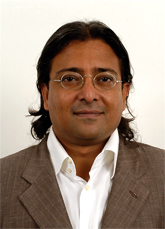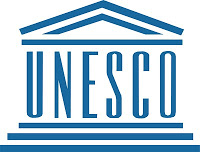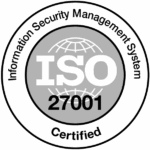
Indrajit Banerjee
Indrajit Banerjee is currently the Director of the Knowledge Societies Division, Communication and Information Sector of UNESCO. Previously he was Chief of Information and Communication Technology in the Education, Science and Culture Section of the Communication and Information Sector.
He obtained his Ph.D in Communication and in Didactics from the Université de la Sorbonne Nouvelle, Paris (France), and did his postdoctoral studies at the Université du Québec, Montreal (Canada). He served as Secretary-General of the Asian Media Information and Communication Centre (AMIC) in Singapore.
In this interview, Dr. Banerjee explains why UNESCO’s Knowledge Societies Division sponsored SciELO, and with the largest support that it has given to any initiative in information.
He states that the SciELO project is a global pioneer because it has been encouraging academic publishing under the Open Access model since four years prior to the famous Open Society meeting in Budapest and the subsequent Berlin conferences. From just 10 journals that began the pilot in 1998, today SciELO has approximately 1,000 peer-reviewed journals from almost 20 countries with a total of more than 400,000 articles.
This successful model has prompted UNESCO to take SciELO as a case study to present to its Member States, to be replicated in other countries of the world.
Banerjee informs us that this case study will be published by UNESCO as a book with funds from the government of Japan.
1. UNESCO is the international organization sponsoring the SciELO 15 Years Conference, which means a major recognition to the SciELO Program and to the celebration of its 15th anniversary. How do you assess the role of SciELO in improving the visibility and quality of national journals by means of government open access funded program based on international cooperation?
 Thank you very much for asking me this question. In fact, UNESCO has given SciELO its patronage. Patronage is UNESCO’s highest form of support. It is granted to demonstrate the Organization’s moral endorsement of an exceptional activity. Patronage granted by the UNESCO Secretariat to SciELO 15 demonstrates a significant international nature and scope of this event. Not least, it also carries a token of UNESCO’s appreciation to SciELO’s effort in making research findings accessible to common people.
Thank you very much for asking me this question. In fact, UNESCO has given SciELO its patronage. Patronage is UNESCO’s highest form of support. It is granted to demonstrate the Organization’s moral endorsement of an exceptional activity. Patronage granted by the UNESCO Secretariat to SciELO 15 demonstrates a significant international nature and scope of this event. Not least, it also carries a token of UNESCO’s appreciation to SciELO’s effort in making research findings accessible to common people.
Since the start of organized scientific investigations, it has been the drive of scientists to share their work with their peers, in order to stimulate discussions, elicit praise, and draw criticism. Such sharing would also create a pretext for stating moral right to the finding; provide a benchmark to advance science to a higher level of perfection; and inspire other scientists to take up or learn better about the research. Journals were effective means of sharing research outcomes and included peer review process, among other validation, quality control and authentication processes.
With increasing access to internet, publication and sharing processes changed. The publishers found a way to commercialize granting of access to published works, and soon started charging excessive amount beyond what scientists, especially from developing countries, could afford. Open Access was a natural reaction to this commercialization. It refers to unrestricted online access to articles published in scholarly journals. Since the events that took place in Budapest and Berlin in early 2000s, it has remained as one of the most passionately discussed topics among the scientific and scholarly community. It is an ongoing movement with many advocates and proponents unfalteringly championing the cause. OA movement is aligned with the overarching Millennium Development Goals (MDG) with its focus on bolstering human capital and the World Summit on the Information Society’s goal of building open and inclusive knowledge societies. To achieve the goal of open and inclusive knowledge societies, different approaches and strategies have been adopted by UNESCO.
SciELO was launched four years before the Budapest Declaration, and six years before the Berlin Declaration on Open Access. In fact SciELO pioneered the concept of Open Access and brought research to the easy reach of the common people. SciELO’s underlying framework comprising the platform for online publishing along with an indexing scheme, bestowed the initial sustenance succeeding thrust to SciELO.
The launching of 10 journals at a public workshop in São Paulo on its inception year to the current level of over 985 journal and over 400,000 freely downloadable articles is a remarkable feat and an example of Open Access approach par-excellence! I understand that SciELO’s website gets over 1.5 million hits and downloads any single day. SciELO has thus extrapolated the very definition of Open access of not only working to provide access to scholarly materials but also providing access to the means of producing visible and recognized journals, particularly aiding the developing and emergent countries.
SciELO’s ideology of developing a common methodology for the preparation, storage, dissemination and evaluation of scientific literature in electronic format, graced it with the critical institutional stability and demonstrated the importance of government funding. SciELO’s core conduct of encouraging sturdy partnerships among national and international scientific communication players — authors, editors, scientific and technological institutions, funding agencies, universities, libraries, etcetera prompted the dissemination, improvement and sustainability of the SciELO model.
This is the very reason why UNESCO, under its Open Access Strategy, had thought about preparing a case study on SciELO. It’s the first case study of this kind, which appreciates and documents the positive contribution of the SciELO and will provide the benefits to the research communities across the world. This book will be lanched during the SciELO’s 15 year anniversary. I must note that the financial resource to prepare this publication was provided by the Government of Japan.
2. SciELO South Africa just acquired the status of a certified collection in the SciELO Network, which entitles the collection and the journals to have access to all the products and services the network offers. It is the eleventh country that succeeded in meeting the criteria established by the Network. It is also the first non-Ibero-American country to enter the SciELO Network. Do you think this will stimulate the adoption of the SciELO model and platform by other developing and emerging countries?
Indeed it will stimulate! I understand that South Africa joined the SciELO network in 2009 signaling a need for the expansion of the approach. It is not too soon to assess the success of SciELO’s approach in Africa as already 26 journals have joined the network and many more are considering joining it. With its effervescent and cooperative decentralized platform philosophy, the way SciELO establishes national focal points, it essentially provides a context for the country to own the Open Access publication process.
Other factors that I consider worth mentioning are SciELO’s review and sustainability concepts. Not only that the methodology ensures quality peer review, but the approach demands that journals continue to publish. It discourages temporary journals and also assures that the articles are acknowledged for their impacts.
The flourishing SciELO’s model supports imperative functions for electronic publication, operating of web sites, production of statistical indicators, and quality metrics etcetera along with relevant training activities.
In the month of March 2013, UNESCO organized a Regional Consultation on Open Access in Kingston Jamaica to share how free and unrestricted access to research and scholarly communication can increase the impact of research and benefit research institutions, authors, journal publishers and the society as a whole. The Consultation deliberated on modalities for developing mechanisms, mandates, and policy frameworks that surround Open Access. Participants had an opportunity to contribute towards identifying priority areas for intervention to achieve “Openness” in the region and in individual countries. One of the recommendations of the consultation was to replicate the SciELO model of Open Access in the Caribbean. Advanced level of discussions is currently underway with the Government of Brazil for technical and financial support for this expansion.
I further think that UNESCO’s publication on SciELO and the related policy brief will definitely draw increased attention of member states to replicate SciELO model in other parts of the world.
3. UNESCO recently launched its Open Access Policy Concerning UNESCO Publications making all of its publications available free of charge from July 1st 2013 onwards through a repository. This is a major breakthrough that dovetails with the open access and information for all programs UNESCO has already been promoting for many years. Could you comment on this decision, its implications and by which other United Nations Organizations it will be adopted?
This is indeed a major step that we have taken to establish that UNESCO does practice what it preaches. On 23 March 2013 the Executive Board of UNESCO discussed and adopted a Draft Open Access Policy for UNESCO Publications. This decision is expected to come to effect from 1st July 2013. This has made UNESCO as the first UN agency to adopt an OA Policy.
The objective of UNESCO’s Open Access Policy is to improve access to research especially its resulting publication and data collected by UNESCO. The policy targets developing countries and is overwhelmingly supported by the Member States as “a major step forward to foster knowledge societies”.
Through its Open Access Policy UNESCO foresees the provision of free access to peer-reviewed, scholarly and research information to all using a Creative Commons-type licensing system. The intention is that all its publications (e.g print, audio, video, and multimedia) shall be made available for free online access all through its website. The OA Policy will require that all publications be deposited into the repository allowing any user in the world to freely read, download, save, copy, print, reuse, adapt and translate the full text of the work.
The implementation of the policy will involve: creation of a new multilingual OA Repository of UNESCO publications; gradual release of documents in the repository; capacity building of staff and revision of existing contracts; permission rights forms; publishing agreements and significant reform in the publication policy of the Organization.
The Open Access Policy requests the Director General to encourage Governments, institutions and research organizations to sign appropriate Open Access instruments such as the Berlin Declaration on Open Access to Knowledge in the Sciences and Humanities. We are therefore discussing with our partners to organize the next year’s Berlin series of conference in Paris.
The Knowledge Societies Division of UNESCO within the Communication and Information Sector (KSD/CI) has been made an integral part of implementation of the Open Access Policy. KSD/CI will develop capacity building toolkits to empower staff members of UNESCO understand UNESCO Open Access Policy. It will help to assess development of new repository and its functionality.
We hope now to be example for others to follow. Interestingly, Open Access has been recognized as an implicit agenda to deal with knowledge challenge in the future. We understand that soon a new policy on the rights will be jointly agreed by the UN system and many other UN organizations will adopt Open Access policy in their publication.
4. In February 2013 UNESCO led the First WSIS+10 Review meeting with international stakeholders to assess the implementation of the World Summit on the Information Society Action Lines. How you access the conclusions and recommendations of the WSIS+10 Review?
As you have correctly noted, the first multi-stakeholder review event that was was held in February this year reviewed the WSIS Action Lines’ achievements, and analyzed recent developments as well as forecasts. Convened within the framework the overall review process of the World Summit on the Information Society; this event contributed to the on-going review of the outcomes of major UN Conferences. It addressed in synergy all dimensions of the WSIS achievements, debated related challenges and issues at stake for the future, and outlined common views about the post 2015 arrangements and sustainable development targets in which ICTs should be adequately recognized as enabler of inclusive development and peace.
The review recognized the prowess of ICTs and noted that their use has led to significant transformation in the societies, which has empowered individuals, enabled economic growth and contributed towards achieving the Millennium Development Goals. It emphatically noted that access to information and knowledge is, however, far from being universal and equitable. Many people are still excluded from the benefits of the information revolution because of existing challenges in access to affordable ICTs as well as a lack of appropriate policies and skills. Recognizing the potential of broadband to accelerate the social and economic progress of countries, there is still an urgent need to bridge the gap between the richest and poorest countries and to address disparities of human capacities and of access to content. Important divides also prevail within countries. Overcoming these challenges will help humanity reap full value from the opportunities that lie before us.
The emergence of the Information Society has raised many hopes. However, information and knowledge are not only forces for social transformation. They are also essential for achieving the promise of sustainable development, mutual understanding and peace. Knowledge Societies build on the sum of human ingenuity, technical innovation and the power of information and knowledge. They have the potential to achieve lasting, positive impacts on education, economic prosperity, social inclusion and environmental protection, taking humanity forward to a new era of peace and sustainable development.
Among many other actions, WSIS Review recognized Open Access as a building blocks to foster Knowledge Societies.
Como citar este post [ISO 690/2010]:














Recent Comments